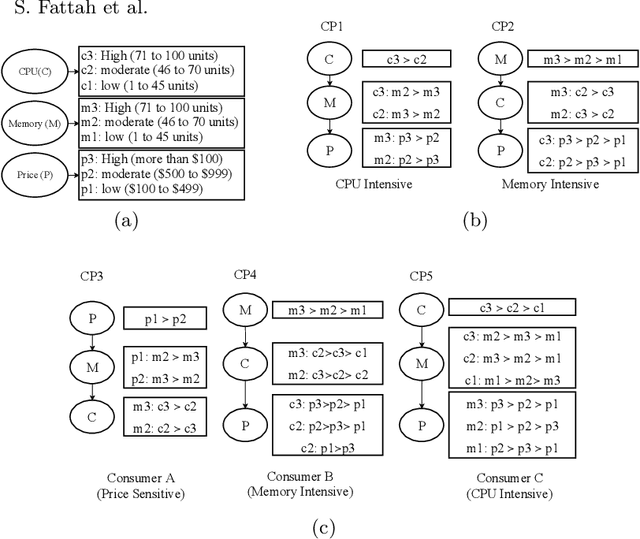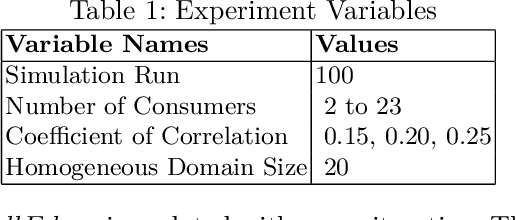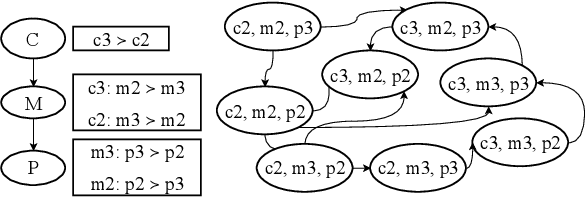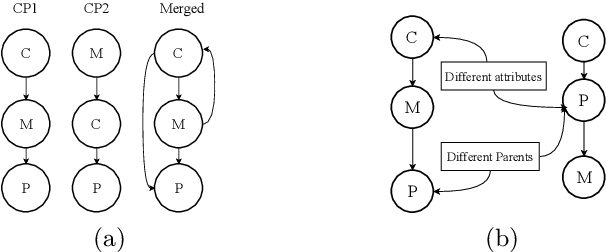Sajib Mistry
Machine Learning as a Service (MLaaS) Dataset Generator Framework for IoT Environments
Jan 18, 2026Abstract:We propose a novel MLaaS Dataset Generator (MDG) framework that creates configurable and reproducible datasets for evaluating Machine Learning as a Service (MLaaS) selection and composition. MDG simulates realistic MLaaS behaviour by training and evaluating diverse model families across multiple real-world datasets and data distribution settings. It records detailed functional attributes, quality of service metrics, and composition-specific indicators, enabling systematic analysis of service performance and cross-service behaviour. Using MDG, we generate more than ten thousand MLaaS service instances and construct a large-scale benchmark dataset suitable for downstream evaluation. We also implement a built-in composition mechanism that models how services interact under varied Internet of Things conditions. Experiments demonstrate that datasets generated by MDG enhance selection accuracy and composition quality compared to existing baselines. MDG provides a practical and extensible foundation for advancing data-driven research on MLaaS selection and composition
FedCTTA: A Collaborative Approach to Continual Test-Time Adaptation in Federated Learning
May 19, 2025Abstract:Federated Learning (FL) enables collaborative model training across distributed clients without sharing raw data, making it ideal for privacy-sensitive applications. However, FL models often suffer performance degradation due to distribution shifts between training and deployment. Test-Time Adaptation (TTA) offers a promising solution by allowing models to adapt using only test samples. However, existing TTA methods in FL face challenges such as computational overhead, privacy risks from feature sharing, and scalability concerns due to memory constraints. To address these limitations, we propose Federated Continual Test-Time Adaptation (FedCTTA), a privacy-preserving and computationally efficient framework for federated adaptation. Unlike prior methods that rely on sharing local feature statistics, FedCTTA avoids direct feature exchange by leveraging similarity-aware aggregation based on model output distributions over randomly generated noise samples. This approach ensures adaptive knowledge sharing while preserving data privacy. Furthermore, FedCTTA minimizes the entropy at each client for continual adaptation, enhancing the model's confidence in evolving target distributions. Our method eliminates the need for server-side training during adaptation and maintains a constant memory footprint, making it scalable even as the number of clients or training rounds increases. Extensive experiments show that FedCTTA surpasses existing methods across diverse temporal and spatial heterogeneity scenarios.
Reinforcement Learning Controlled Adaptive PSO for Task Offloading in IIoT Edge Computing
Jan 25, 2025



Abstract:Industrial Internet of Things (IIoT) applications demand efficient task offloading to handle heavy data loads with minimal latency. Mobile Edge Computing (MEC) brings computation closer to devices to reduce latency and server load, optimal performance requires advanced optimization techniques. We propose a novel solution combining Adaptive Particle Swarm Optimization (APSO) with Reinforcement Learning, specifically Soft Actor Critic (SAC), to enhance task offloading decisions in MEC environments. This hybrid approach leverages swarm intelligence and predictive models to adapt to dynamic variables such as human interactions and environmental changes. Our method improves resource management and service quality, achieving optimal task offloading and resource distribution in IIoT edge computing.
Robust Composition of Drone Delivery Services under Uncertainty
Jul 18, 2021


Abstract:We propose a novel robust composition framework for drone delivery services considering changes in the wind patterns in urban areas. The proposed framework incorporates the dynamic arrival of drone services at the recharging stations. We propose a Probabilistic Forward Search (PFS) algorithm to select and compose the best drone delivery services under uncertainty. A set of experiments with a real drone dataset is conducted to illustrate the effectiveness and efficiency of the proposed approach.
Reputation Bootstrapping for Composite Services using CP-nets
May 27, 2021



Abstract:We propose a novel framework to bootstrap the reputation of on-demand service compositions. On-demand compositions are usually context-aware and have little or no direct consumer feedback. The reputation bootstrapping of single or atomic services does not consider the topology of the composition and relationships among reputation-related factors. We apply Conditional Preference Networks (CP-nets) of reputation-related factors for component services in a composition. The reputation of a composite service is bootstrapped by the composition of CP-nets. We consider the history of invocation among component services to determine reputation-interdependence in a composition. The composition rules are constructed using the composition topology and four types of reputation-influence among component services. A heuristic-based Q-learning approach is proposed to select the optimal set of reputation-related CP-nets. Experimental results prove the efficiency of the proposed approach.
Sequential Learning-based IaaS Composition
Feb 24, 2021



Abstract:We propose a novel IaaS composition framework that selects an optimal set of consumer requests according to the provider's qualitative preferences on long-term service provisions. Decision variables are included in the temporal conditional preference networks (TempCP-net) to represent qualitative preferences for both short-term and long-term consumers. The global preference ranking of a set of requests is computed using a \textit{k}-d tree indexing based temporal similarity measure approach. We propose an extended three-dimensional Q-learning approach to maximize the global preference ranking. We design the on-policy based sequential selection learning approach that applies the length of request to accept or reject requests in a composition. The proposed on-policy based learning method reuses historical experiences or policies of sequential optimization using an agglomerative clustering approach. Experimental results prove the feasibility of the proposed framework.
A CP-Net based Qualitative Composition Approach for an IaaS Provider
Feb 24, 2021



Abstract:We propose a novel CP-Net based composition approach to qualitatively select an optimal set of consumers for an IaaS provider. The IaaS provider's and consumers' qualitative preferences are captured using CP-Nets. We propose a CP-Net composability model using the semantic congruence property of a qualitative composition. A greedy-based and a heuristic-based consumer selection approaches are proposed that effectively reduce the search space of candidate consumers in the composition. Experimental results prove the feasibility of the proposed composition approach.
Layer-based Composite Reputation Bootstrapping
Feb 01, 2021



Abstract:We propose a novel generic reputation bootstrapping framework for composite services. Multiple reputation-related indicators are considered in a layer-based framework to implicitly reflect the reputation of the component services. The importance of an indicator on the future performance of a component service is learned using a modified Random Forest algorithm. We propose a topology-aware Forest Deep Neural Network (fDNN) to find the correlations between the reputation of a composite service and reputation indicators of component services. The trained fDNN model predicts the reputation of a new composite service with the confidence value. Experimental results with real-world dataset prove the efficiency of the proposed approach.
 Add to Chrome
Add to Chrome Add to Firefox
Add to Firefox Add to Edge
Add to Edge